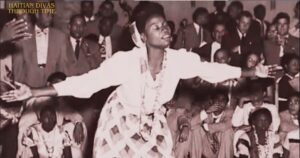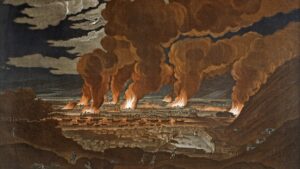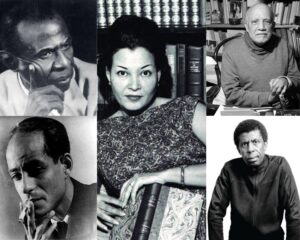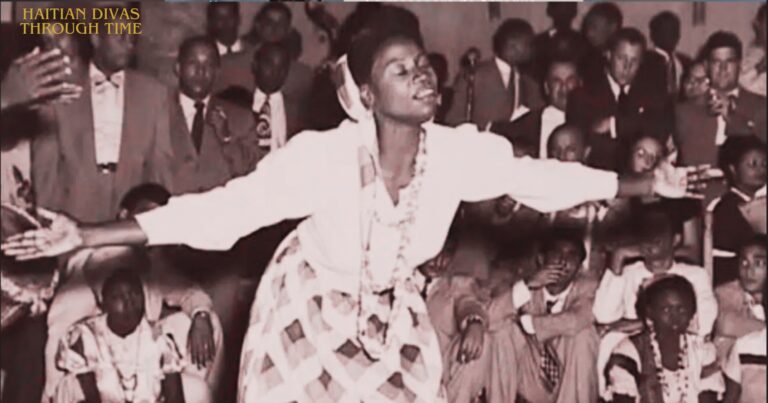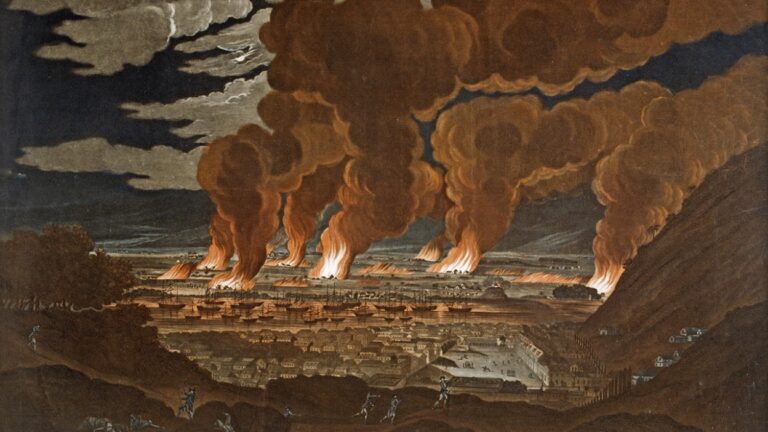Let’s be clear: if your favorite Haitian writer isn’t on this list, it’s because they just don’t measure up to these five sacred monsters. And this isn’t just a tribute to their literary genius; it’s a celebration of how each of them, in their own nuclear way, embraced the soul, the culture, and the history of this country.
If Haiti were a poem, these five would be its verses. Line after line, they speak of pain, beauty, defiance, resilience, and dream.
Jean Price-Mars: The Keeper of Roots
“The highest precept, and the greatest of all, that which governs the art of reading and sums it up, in any language that art is practiced and any book one reads, the first and the last rule of the art of reading is to read slowly, to read very slowly.”
— La Vocation de l’Élite
I was in my early twenties when I first read Ainsi parla l’oncle, the holy scripture of Jean Price-Mars. Even earlier, back in high school, my philosophy teacher called him probably the only true Haitian philosopher, one of the rare minds, along with Firmin and Hannibal Price, to analyze Haiti with scientific rigor, free of fantasy or myth. And honestly, he wasn’t wrong.
Uncle Price-Mars didn’t write to please; he wrote to heal. In Ainsi parla l’oncle (1928), he goes straight to the root of our sickness, reminding us that self-contempt is the first colonial disease. He delivers a brutal truth: it’s impossible to build a nation when you despise your own gods, your own language, your own drums.
Father of indigénisme, he gave Haitian thought its spine. The kind of man whose name people drop at intellectual dinners, but who’s better reread if you truly want to understand why we keep spinning in circles. What fascinates me most in his work is his analytical jewel: the concept of “collective bovarism.” Much like Flaubert’s character, Haitian society has long failed to recognize what unfolds before its very eyes, unable to see itself for what it truly is. Perhaps it’s in that same spirit that Price-Mars wrote La Vocation de l’Élite, both a scolding and a prayer to Haiti’s self-absorbed elite. Anyway, we’re here to talk about literature, so let’s move on.
Jacques Roumain: The People’s Poet
With the gentleman Roumain (every photo of him with a cigarette could pass for a James Bond poster), Haitian literature boldly carved its path into the universal.
Had he lived longer, Roumain might have led a revolution on his own. Gouverneurs de la rosée (1944) is a book that should be read out loud, in the fields, among workers. It’s the cry of a peasant returning from exile who refuses fatality, a hymn to community, sweat, and love as acts of resistance. Every word in Roumain’s writing breathes dignity. If you must read only one book to understand Haitian hope, this is the one.
René Dépestre: The Hedonist Rebel
Dépestre is proof that one can love revolution as much as women. Balancing sensual poetry and political fire, he turned pleasure itself into a weapon. In Hadriana dans tous mes rêves (1988), eroticism intertwines with Vodou and death, baroque, flamboyant, almost carnivalesque. Dépestre is the embodiment of a Haiti that refuses to apologize for living, even when everything around it burns.
Marie Vieux-Chauvet: The Forbidden Voice
Too intelligent. Too free. Too true.
Amour, colère et folie (1968) wasn’t just censored; it almost vanished. Marie Vieux-Chauvet wrote what others didn’t even dare to think: power, fear, sexuality, oppression. Long erased from our textbooks, she is now the black star of Haitian literature, the one who reminds us that the freedom to write is always dangerous. I hesitated for a long time between her and Yanick Lahens, but Vieux-Chauvet wins this round; her silence still echoes like thunder.
Dany Laferrière: The Chronicler of Exile
“The less literature you make, the more you’re in the act of writing.”
— Journal d’un écrivain en pyjama
Laferrière is the kid who crossed history wearing shorts and irony. With How to Make Love to a Negro Without Getting Tired (1985), he shook the French literary world, triggering as much laughter as scandal. But behind the irony lies tenderness, the gentle melancholy of L’Énigme du retour (2009), a poetic voyage back to the homeland of his childhood. An Academician without a tie, he writes the way others breathe: freely. And maybe that’s the real victory.
Five Pens, One Nation
Five pens. Five eras. One shared fury to write. From Price-Mars to Laferrière, these authors didn’t just write about Haiti, they wrote Haiti. Their work is a shattered mirror where every fragment tells the story of a people’s dignity, a language’s beauty, a dream’s persistence. Reading them is remembering that even in ruins, Haitian words still dance.
So next time someone mentions an “overlooked” Haitian author, just ask yourself:
Are they GOAT… or not yet?



